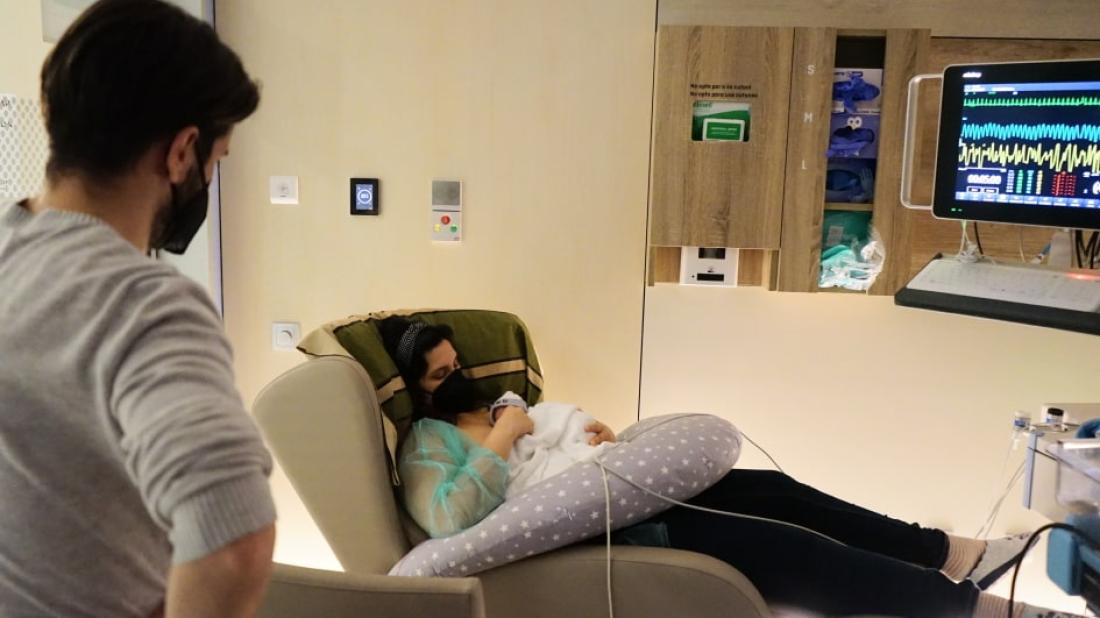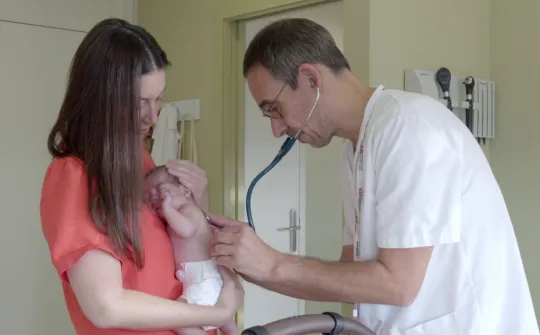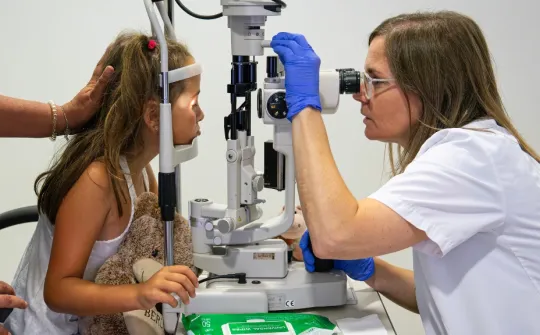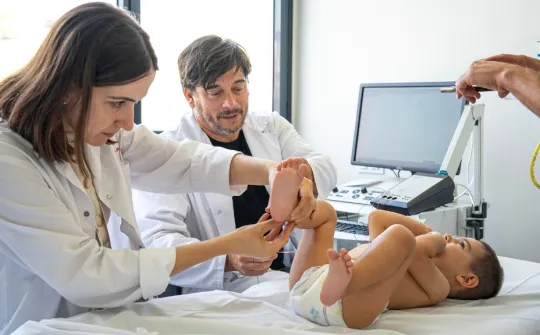The neonatal ICU of SJD Barcelona Children's Hospital, the first in Catalonia with compartmentalized rooms

The new Unit, divided into rooms, favours the baby's well-being and good progress because it allows the parents to spend more time with him or her.
The SJD Barcelona Children's Hospital is the first in Catalonia to put into operation a new Neonatal Intensive Care Unit (NICU) that distinguishes it from the previously open space model. The new space, led by the Neonatology Department and pioneer in this type of operation, has been divided into various types of room since scientific evidence shows that having one's own space is conducive to the presence of parents, and their involvement in the care of the baby favours his/her well-being and reduces nosocomial infections. "The fact that parents can spend as much time as possible with their children is important for all babies, but fundamental in the case of premature babies because it favours breastfeeding, allows more skin to skin. For these patients, contact with the family forms part of the treatment", said the Head of the Neonatal ICU, Martín Iriondo, and the Nursing Coordinator, Maria José Troyano.
With a surface area of 2,266 square metres, the new NICU is four times larger than the previous one. It contains 44 beds (6 more than the previous one), distributed between 24 single rooms, 5 doubles, 2 triples and one quadruple, designed for parents who must be absent at certain times of the day and cannot be continuous with their babies. The Unit also offers a space for families equipped with a kitchen office, a rest area with sofas and a television, and a bathroom and shower area to make the time spent in admissions more bearable. There are also two work areas for professionals and a simulation box, as well as a renovated breastfeeding room with insulation and pressurization improvements as well as constant temperature monitoring and an alarm system that increases safety in feeding premature babies.
Improvement of the conditions for the well-being and evolution of the baby
Every year, around 600 babies are admitted to the SJD Barcelona Children's Hospital Neonatal ICU. These are babies who have been born in the Hospital or have been referred from other hospital centres because they were born prematurely or presented with health problems such as congenital malformations, respiratory syndromes or infections, among others.
The environmental conditions of the space where these babies spend the first days of their life play a very important role in their well-being and progress. A study published in the journal "The Lancet" shows that an ICU divided into rooms–compared to the conventional one with open space–brings many benefits. Not only does it guarantee greater intimacy and comfort for the family, but it favours breastfeeding because they can breastfeed directly and can do the kangaroo method (skin-to-skin) for longer periods of time so that mothers can spend more time with their children. In addition, it improves the control of noise and light favouring sleep for newborns and their neurological development, especially in the case of those born prematurely. The new structure also favours greater family involvement in the care of their baby and reduces the risk of nosocomial infections, factors that help to reduce hospital stay times and readmissions.
"Surgical" rooms and technology for complex cases
Three rooms (two singles and one double) can be converted into operating theatres to be able to operate on the most unstable babies without having to transfer them outside the unit. In addition, two beds are specially equipped for performing ECMO (extracorporeal life support indicated when breathing or circulation fails). In the NICU, congenital diaphragmatic hernias, necrotising enterocolitis, premature infants with retinopathy, ductus and some digestive malformations, among others, are operated on. Each year, the Hospital performs around 110 neonatal surgeries of which a fifth can be performed in the Unit itself.
The new unit incorporates the latest technologies and features four levels of patient monitoring, which allows professionals to detect an alarm signal quickly, wherever they are so that this alarm is instantly sent to four devices: a monitor which is inside the box, another outside, one at the nursing control station and another mobile device that the team members carry in their pocket at all times. The alarms vary depending on their importance, so they allow an immediate response in critical situations. It also has a system that enables safe drug management and software that optimises resource management.
A space designed with the help of families and simulated before construction
The SJD Barcelona Children's Hospital's new Neonatal Intensive Care Unit incorporates all these measures as well as others that patients' families have suggested. During the design process of the NICU, those responsible for the project invited a group of families who had been users of the service to express their needs and their suggestions on what the new space should be like. These suggestions were collected by the Patient Experience team, which conducted interviews with 32 families and, based on this information, identified the needs for improvement in the healthcare process, as well as those related to the space and equipment. At the same time, a working group from the Unit was created to define the elements for improvement and co-creation sessions were held to find solutions to the main difficulties.
In addition, to test the spaces before building it, a life-sized cardboard model of an individual room was made where the professionals were able to simulate different common care practices in a neonatal unit, such as stabilisation of the patient, a cardiopulmonary resuscitation but also urgent and complex procedures such as ECMO or surgery. The objective was to check if the dimensions were suitable and the distribution of space and furniture was adequate and to introduce those points of improvement to the plan before it became a reality.



